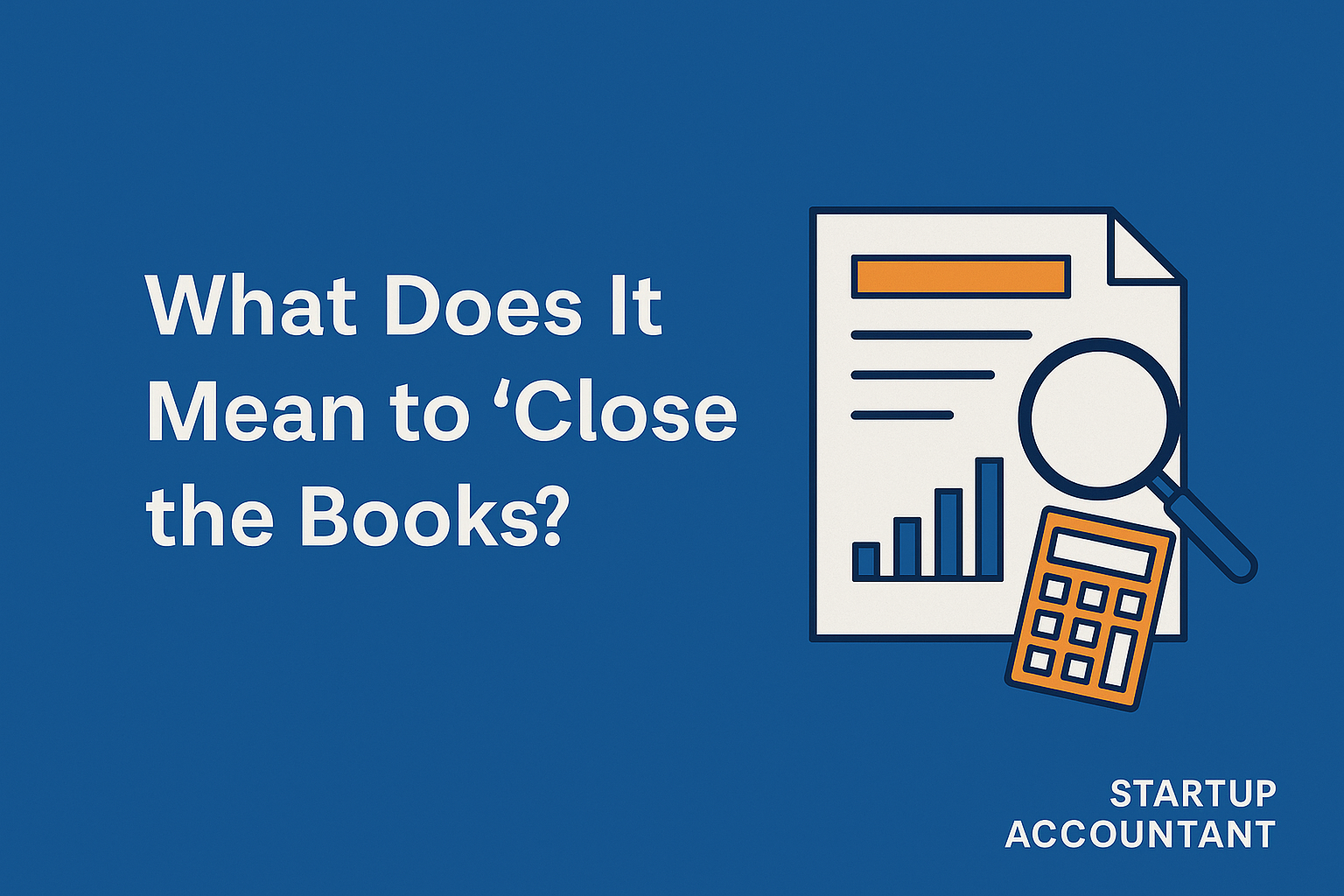
Learn what it means to close the books and what best practices we suggest for startup accounting.

Jun 2, 2025

If you’re an early-stage founder trying to stay on top of your finances while building product and raising capital, you’ve probably heard the phrase “close the books” and wondered: What does that actually mean?
In startup accounting, closing the books is a monthly ritual that helps you understand your burn, track performance, and prepare for investor conversations. Done right, it turns chaos into clarity.
In this guide, we’ll break down:
Closing the books means finalizing your startup’s financial records for a specific time period—usually at the end of the month. Once the books are “closed,” the numbers for that period are locked in and ready to report, analyze, or share with stakeholders.
For early-stage B2B SaaS companies, closing the books isn’t just about compliance. It’s about having a clear, up-to-date view of your startup’s financial health. With accurate monthly closes, you can:
The month-end close involves reviewing and reconciling all financial activity to ensure your books reflect reality. Here are the key tasks that go into closing the books:
These steps ensure your financial close is complete, accurate, and investor-ready.
Want to close your books faster and with fewer headaches? Here are some best practices that high-performing startups follow:
Aim to close your books by the 5th–10th of the following month. This keeps your data fresh and decision-ready.
Once your books are closed, review your financials month over month to highlight meaningful changes:
This simple habit makes trend analysis possible and gives you early warning signs before problems snowball.
A documented close process keeps things consistent and scalable as your team grows. It also helps if you bring in outsourced bookkeeping support.
Use tools like QuickBooks, Ramp, or Gusto to streamline data entry. But remember: automation ≠ insight. You still need to review what the numbers are telling you.
Many early-stage founders fall into these traps when trying to handle bookkeeping on their own:
If your books don’t match your bank accounts, your financials are unreliable.
Inconsistent or incorrect categorization makes it hard to analyze spending and creates problems when preparing financial statements or taxes.
Waiting until the end of the quarter or even the year to close your books means flying blind for weeks or months at a time.
Even with a bookkeeper or software, you need to look at the reports. A quick review of your P&L and cash flow can catch surprises early.
Whether you’re pre-revenue or scaling to your first million ARR, closing the books each month is one of the most powerful habits you can build as a founder. It gives you the visibility to manage cash, control spend, and move faster with fewer surprises.
At Startup Accountant, we specialize in monthly bookkeeping, payroll, and budget support for venture-backed SaaS companies. We’ll close your books on time, every time—so you can focus on building, not balancing.
👉 Ready to finally have clean, reliable financials every month? Let’s talk.
© 2025 Startup Accountant. All Rights Reserved.